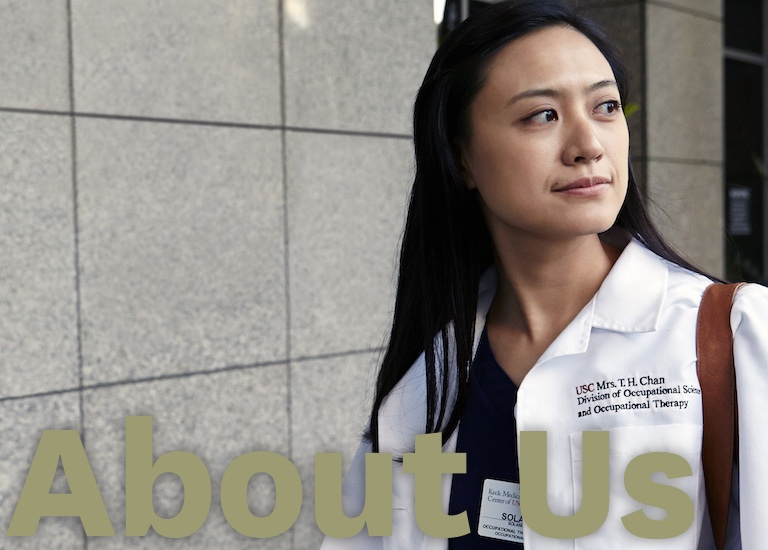Knowledge Mobilization (KMb)
A team of USC Chan faculty have developed a new visual model specific to occupational science and occupational therapy that demonstrates knowledge mobilization (KMb) relationships and interactions.
The model, which has been in development for several years, shows a four-phase process of generating, spreading, grasping and using knowledge centered around shared priorities. These four phases interact in dynamic, fluid and unexpected ways. Sometimes efforts move back and forth between the phases, while other times, stakeholders need to revisit the shared priority before moving to an adjacent phase. Those efforts are then envisioned to make impacts which “ripple” within contexts, ranging from the individual to the structural.
USC Chan Knowledge Mobilization Visual Model (copyright ©USC Chan, 2024)
KMb is a term used to describe the non-linear, flexible process of knowledge generation, uptake and impact, as an alternative to more traditional concepts of linear, uni-directional “dissemination” of research. KMb consists of more than simply information distribution, exchange and translation; rather, its main goal is to put research into action for the benefit of end users. End users can include consumers, clinicians, educators, policy makers, advocates and/or other stakeholders who are typically engaged throughout the entire KMb process. Together, they can solve problems that lie beyond the expertise of any single group of participants by co-producing knowledge, moving it into use and working together to assess its impact(s).
Examples of KMb projects and integrations at USC Chan
- gamechanger is a team-based challenge for USC Chan community members and colleagues to design and produce KMb products
- The Occupational Science Symposium is the division’s premier interdisciplinary academic event to enhance the scholarship of occupational science
- The Responding to Society’s Post-pandemic Occupational Needs (ReSPONs) initiative addresses the intersections of the COVID-19 pandemic, systemic racial injustice and widening occupational inequalities together impacting society
- Active research projects pursue, generate and mobilize knowledge with relevant outcomes for real-world interventions that improve human health, quality of life and well-being
- Community projects engage various community partners to increase access, experience and quality around shared priority
- Continuing education programs offer ongoing learning opportunities for expanded knowledge and skills in occupational science and occupational therapy





